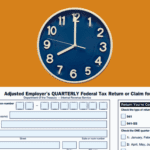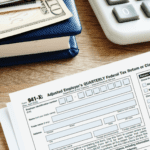Being the subject of any tax audit can be stressful, but the intensity magnifies when an audit involves the Internal Revenue Service. Here are a few tips to help you deal with an IRS audit as efficiently and affordably as possible.
Understand why you’re part of an IRS audit. The IRS uses a computer system to “flag” certain tax returns for audit. Taxpayers with taxable income of more than $200,000, those who are self-employed and file a tax return with significant claimed business expenses relative to reported income, or those who claim high charitable contributions relative to income may be “high-risk” for an IRS audit, according to experts at the Society of Grownups.
Being audited by the IRS doesn’t mean you’re guilty of tax fraud, that your tax preparer made an error or even that you’ll owe money. It simply means that an aspect of your tax return was deemed questionable, based on the IRS audit process and flagging procedures.
Review your documents. The IRS is required to notify you with a letter in the mail detailing why you’re being audited by the IRS, what tax years the audit involves, and what documents the audit requires that you provide in order to perform the audit.
Pull tax documents related to the tax years in question, along with paper records such as earning forms, receipts or similar documentation that further supports any claim(s) the letter indicates triggered the IRS audit.
If you used a tax preparer to produce the tax return in question, let him or her know that you are being audited by the IRS. Tax professionals may need to provide certain details about the tax return they filed on your behalf as part of the IRS audit, and may be willing to manage communications with auditors free of charge.
Find the IRS audit help you need. If you don’t have the documents to support the aspects of your tax return that triggered the IRS audit, you may want to consider IRS audit help. A professional tax audit firm, a tax attorney or a CPA will know how to communicate with auditors, and may be able to negotiate certain fees that arise from the IRS audit. A tax professional can also help you provide the tax audit details the IRS requests in a timely manner, and/or negotiate alternative documents the auditor may be willing to accept to support your claims in the tax audit.
Ensure that you agree with the audit’s outcome. An IRS audit can be lengthy, but it will end eventually. Once the IRS has completed the audit, you will receive a “Notice of Proposed Income Tax Examination Changes” letter. It will outline what the IRS determines you owe, if anything, along with fees and penalties assessed as a result of the audit findings.
Review the letter with a tax professional. If you have any questions about the findings or what the IRS audit says you owe, your tax professional can help you dispute any aspects of it you feel are incorrect.






 Steven N. Klitzner, P.A. is a tax attorney based in Miami, Florida. He has been practicing tax law for over 40 years, and currently holds a 10.0 rating by Avvo. Mr. Klitzner was appointed to the IRS Service Advisory Council in 2021 and is...
Steven N. Klitzner, P.A. is a tax attorney based in Miami, Florida. He has been practicing tax law for over 40 years, and currently holds a 10.0 rating by Avvo. Mr. Klitzner was appointed to the IRS Service Advisory Council in 2021 and is... 





